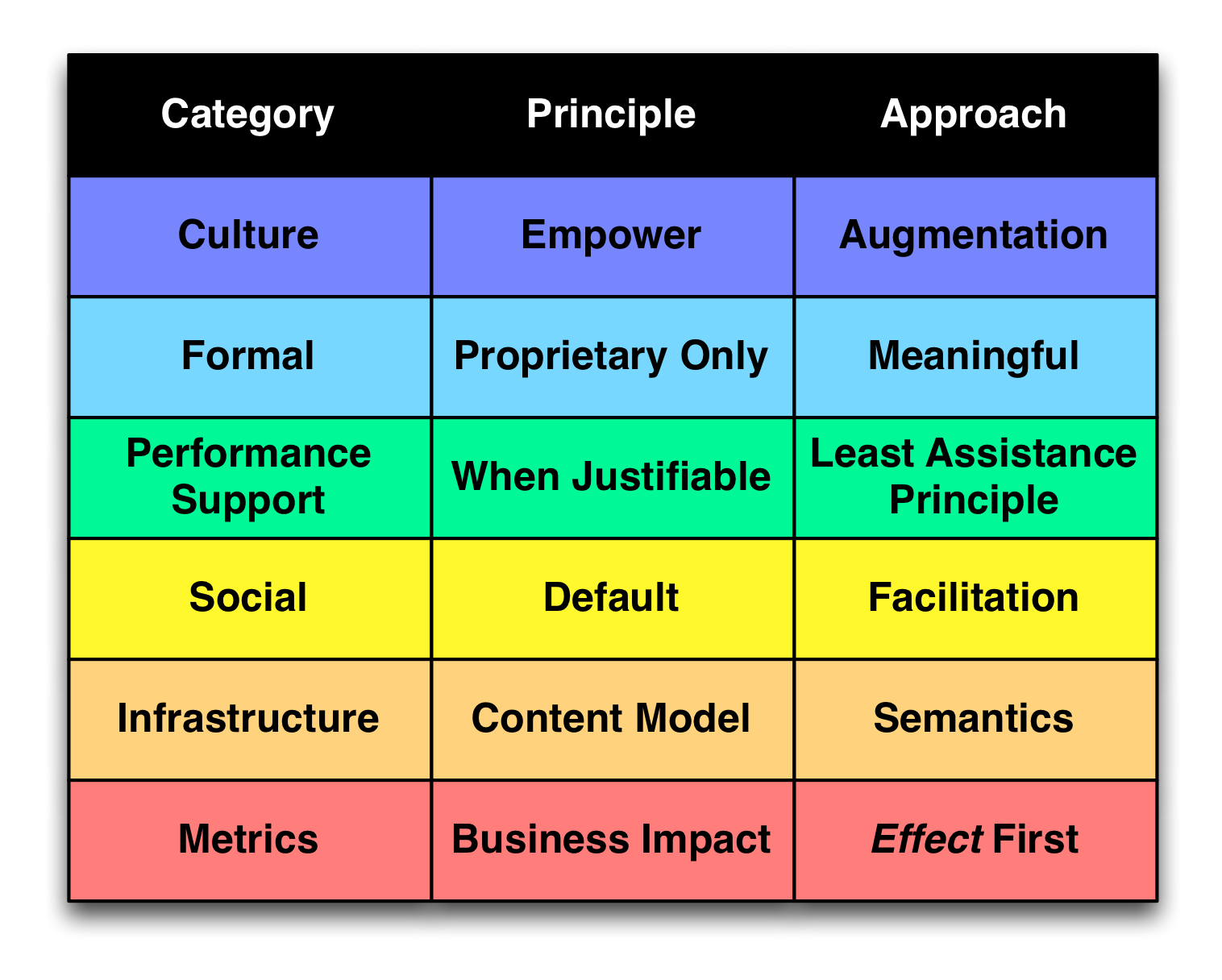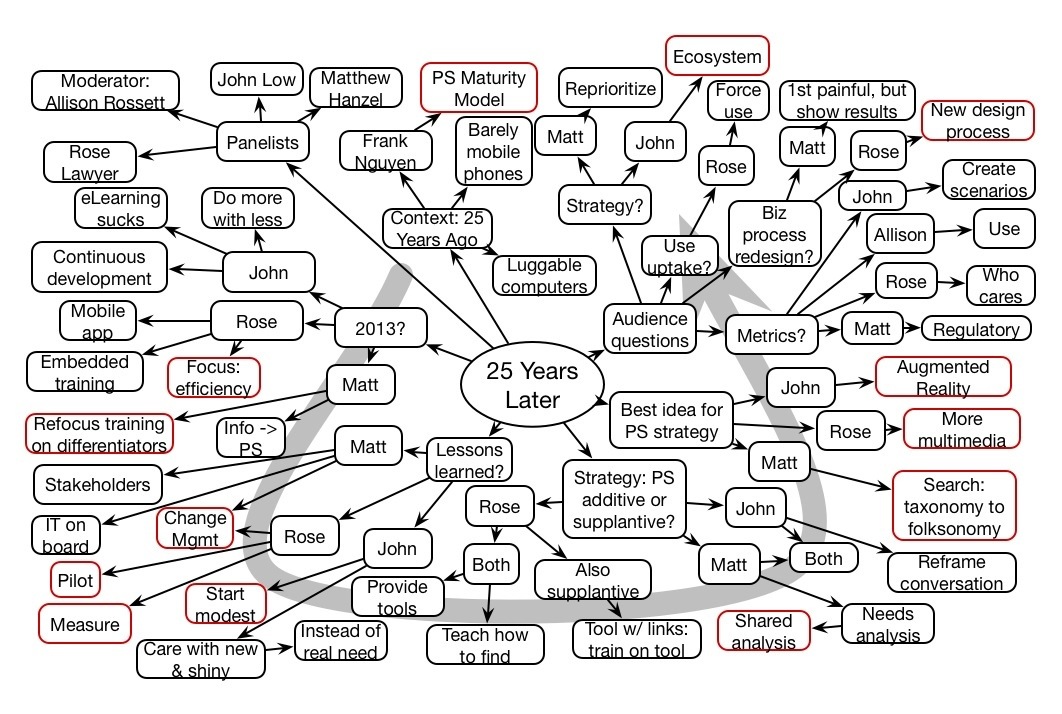Last week, I talked about what L&D could (and should) look like. In thinking about how to move folks forwards, I’m working on looking at various ways to characterize the different elements, and what various levels of profession should be. One of my first stabs is trying to get at the necessary core principles, and the associated approach to be taken. Here’s the thinking:
 We start with the culture of the organization. What the culture should be doing is empowering individuals, providing them with support for learning. And that is not to provide all the answers, but to support people discovering the answer. The goal is to not only address optimal execution, but increasingly to address continual innovation, which comes from cooperation and collaboration. The goal is to augment their existing capabilities with appropriate skills and tools to focus on accomplishing the work to hand. And not reintroducing things that already exist or can be found elsewhere.
We start with the culture of the organization. What the culture should be doing is empowering individuals, providing them with support for learning. And that is not to provide all the answers, but to support people discovering the answer. The goal is to not only address optimal execution, but increasingly to address continual innovation, which comes from cooperation and collaboration. The goal is to augment their existing capabilities with appropriate skills and tools to focus on accomplishing the work to hand. And not reintroducing things that already exist or can be found elsewhere.
That means that formal learning really should be focused on proprietary activities. Don’t design training on commercial tools, that exists. Save the effort to do a real course for those things that are fixed for long enough and specific to your organization. And make it meaningful: contexts that the user gets, skills that the user recognizes are needed, and that will make a real impact on the business. Done properly, with sufficient practice, it will take time and money: formal learning should be expensive, so use those precious resources where and when it really should be applied.
Performance support is more likely to add value in the moment, helping augment our limited memory and working memory capacity. When people need to be focused on the task, designing or curating resources to be used in the moment is a more cost-effective option, though again to be used appropriately. If things are changing too fast, or the situation’s unique, there are better options. And when you are developing or sourcing support, realize that less is more. Look to be minimalist, and your performers (and the bottom line) will thank you.
If things are changing too fast, or the situation’s new and unique (which will be happening more often), the network is likely to be your best resource and likely should be your first. The role here is to make sure that the network is available and vibrant. Facilitation of dialog, and skills, will make this solution the most powerful one in a company that intends to thrive.
The infrastructure, beyond the usual integration of tools, needs to take another level down, and start treating content as an asset that drives outcomes. The steps that matter are to get detailed about the content structures, the model, underneath, and the associated governance. At the end, it requires a focus on semantics, what labels we have and how we define and describe content to move forward into personalization and contextualization.
Finally, we need to measure what we’re doing, and we have to stop doing it on efficiencies. How much it costs us per seat hour doesn’t matter if that time in the seat isn’t achieving anything. We need to be measuring real business effects: are we increasing sales, decreasing costs or errors, solving problems faster, decreasing time to market, increasing customer satisfaction, the list goes on. Then, and only then, should we be worrying about efficiencies. Yes, we should be smart about our investments, but all the efficiency in the world about doing something inane is just kind of silly.
So, does this make sense? Any tuning or clarification needed? Feedback welcome.
